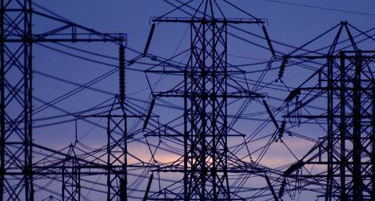In a significant regulatory shift, the Nigerian Electricity Regulatory Commission (NERC) has formally issued an order to transfer regulatory oversight of the electricity market in Edo State to the newly established Edo State Electricity Regulatory Commission (ESERC). This development, announced in a statement by NERC on Wednesday, aligns with the provisions of the amended Constitution of the Federal Republic of Nigeria (CFRN) and the recently updated Electricity Act of 2023.
The move marks a pivotal moment in the decentralization of Nigeria’s electricity regulatory framework. With the enactment of the Electricity Act 2023, NERC’s role has been redefined to serve as the central regulator, primarily overseeing inter-state and international aspects of electricity generation, transmission, supply, trading, and system operations. However, the Act also empowers states with the legal authority to establish their own regulatory bodies to manage intrastate electricity markets.
 For any state to assume this responsibility, it must adhere to specific legal prerequisites. These include a formal notification process and a request to NERC for the transfer of regulatory authority over intrastate electricity operations to the state’s regulatory body. In compliance with these requirements, the Government of Edo State formally notified NERC of its intention to establish the ESERC and requested the transfer of regulatory oversight of the intrastate electricity market within the state. NERC’s subsequent order to transfer these responsibilities to ESERC marks the fulfillment of these legal obligations.
For any state to assume this responsibility, it must adhere to specific legal prerequisites. These include a formal notification process and a request to NERC for the transfer of regulatory authority over intrastate electricity operations to the state’s regulatory body. In compliance with these requirements, the Government of Edo State formally notified NERC of its intention to establish the ESERC and requested the transfer of regulatory oversight of the intrastate electricity market within the state. NERC’s subsequent order to transfer these responsibilities to ESERC marks the fulfillment of these legal obligations.
According to the order issued by NERC, several key provisions will guide this transfer of authority. One of the most significant directives is that the Benin Electricity Distribution Company (BEDC), which currently handles electricity distribution in Edo State, must create a subsidiary entity. This subsidiary, referred to as BEDC SubCo, will be responsible for managing the intrastate supply and distribution of electricity exclusively within Edo State. BEDC has been given a 60-day timeline, starting from August 21, 2024, to complete the incorporation of BEDC SubCo.
Furthermore, BEDC SubCo will be required to apply for and obtain the necessary licenses from ESERC to operate within the state. This process is critical to ensure that the new regulatory framework is fully operational and that all legal and administrative procedures are properly observed. The order also specifies that all transfers and regulatory adjustments outlined in the directive must be completed by February 20, 2025.
This transition signifies a new era for the electricity market in Edo State, where the state government, through ESERC, will now have direct control over the regulation of electricity supply and distribution within its borders. The establishment of ESERC and the transfer of regulatory authority are expected to bring about more localized governance of electricity, potentially leading to improved efficiency, better service delivery, and quicker response times to the needs of electricity consumers in the state.
The creation of ESERC and the restructuring of BEDC’s operations also align with broader national goals of enhancing electricity access and reliability. By decentralizing regulatory oversight, the state government can tailor its approach to electricity regulation based on the specific needs and circumstances of its residents, which could lead to innovative solutions to the longstanding challenges facing the electricity sector in the region.
As the February 2025 deadline approaches, all eyes will be on how effectively this transition is managed. The success of ESERC in regulating the intrastate electricity market could serve as a model for other states looking to establish similar regulatory bodies. However, the process will require careful coordination between NERC, BEDC, and the Edo State Government to ensure a smooth and effective transfer of authority.
This development is a clear indication of the ongoing evolution of Nigeria’s electricity sector, with potential implications not just for Edo State but for the broader national electricity market. As the process unfolds, stakeholders and consumers alike will be keenly observing the impact of this regulatory change on electricity supply, pricing, and service delivery in Edo State.




